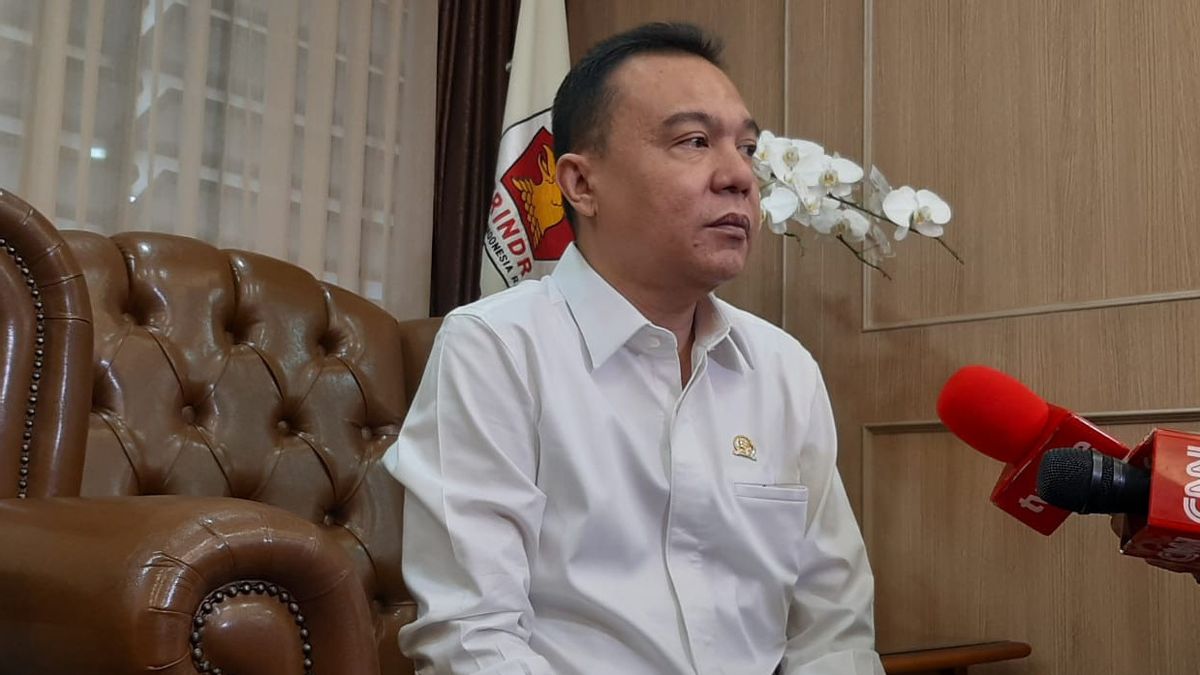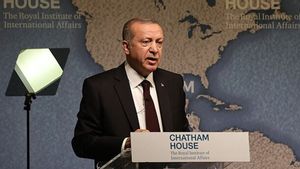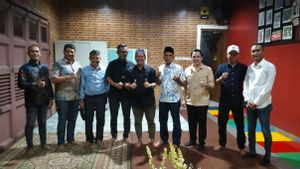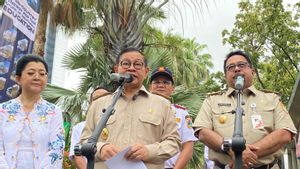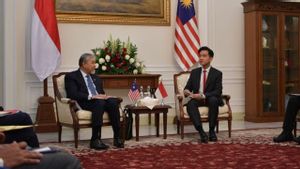JAKARTA - President Joko Widodo (Jokowi) said that the death penalty for perpetrators of corruption (corruption) could be applied if it was the will of the community. The death penalty for corruptors can also be accommodated through the revision of Law Number 20 of 2001 concerning amendments to Law Number 30 of 1999 concerning Eradication of Corruption (Tipikor).
Deputy Speaker of the DPR, Sufmi Dasco Ahmad, appreciated President Joko Widodo's (Jokowi) statement regarding the death penalty for corruptors. He considered, this was a warning from the Head of State to officials in the country not to behave in a corrupt manner.
"So the stern warning is a signal that the President will not discriminate and will firmly eradicate corruption. We appreciate that," he said, at the DPR Building, Parliament Complex, Senayan, Jakarta, Tuesday, December 10.
However, according to Dasco, the level of guilt related to the implementation of the death penalty needs to be weighed. Including, acts of corruption based on the sector.
For example, President Jokowi said the death penalty could be applied to those who commit corruption in the humanitarian sector. For example, corruption in natural disaster funds.
"I agree with that. Because natural disasters are urgent. When natural disasters occur, there are people who are troubled and suffer. If then the aid or budget management is corrupted, it is too much. I agree with that," he explained.
Corruptor's death penalty has been regulated in the Corruption Act
DPR Commission III member Nasir Jamil conveyed that the discourse on the death penalty for corruptors as conveyed by President Jokowi is actually not new. In the Corruption Act (Tipikor) the death penalty can be given to corruptors under certain conditions.
"Actually, the death penalty for corruption has also been regulated in the law on corruption, so it doesn't have to be what the public wants, Pak Jokowi, in my opinion, was wrong," said Nasir.
At least the provisions for the death penalty are included in several laws. Among them are the Corruption Act, the Law on Human Rights, the Law on Narcotics and in the Criminal Code (KUHP).
"In the Criminal Code which will be revised the death penalty will be called a gradual, so the judge can later decide, for example, the prosecutor demands for the death penalty, the judge then decides on life," he explained.
Nasir explained, the provisions for the death penalty for corruptors can be carried out under two conditions. First, the economic condition of the country or region which is in crisis. Second, the condition of the country or region is in a serious disaster.
"State administrators, for example, commit corruption in these two conditions. The law says that he deserves to be sentenced to death," he said.
This PKS politician emphasized that currently what is needed is the courage of the president and law enforcement officials to apply the death penalty to corruptors. Not precisely by giving remissions and even clemency to convicted corruption cases.
"The president should not be just rhetoric. Introspect regarding the granting of clemency to convicted corruption cases and so on. Therefore, we hope that the President, if he wants to talk about corruption, remains consistent," he said.
When met separately, the head of the National Human Rights Commission, Ahmad Taufan Damanik, emphasized that his party was still on its stand against the imposition of the death penalty. Not only for criminals, but also convicts for other crimes.
"Komnas HAM has never changed its attitude. We reject the death penalty. The highest relation is how we can build civilization. From a pragmatic side there is also no statistical evidence that the death penalty reduces the rate of extra ordinary crime. And that is all over the world," he said.
Komnas HAM also said that it invited all parties to build a higher value of civilization. "It's not that if someone is guilty, we get revenge, life is for life," he said.
The English, Chinese, Japanese, Arabic, and French versions are automatically generated by the AI. So there may still be inaccuracies in translating, please always see Indonesian as our main language. (system supported by DigitalSiber.id)
